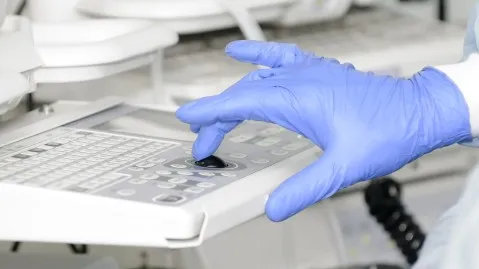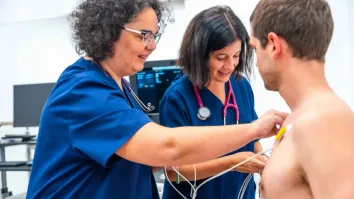
AI, telehealth key to improve diagnosis for APAC radiologists: Royal Philips
80% of radiologists in Singapore, Australia, and South Korea believe that introduction of AI will lead to a more confident diagnosis.
The use of artificial intelligence and teleradiology will lead to a more confident diagnosis and data processing for radiologists in the Asia Pacific region, health technology firm Royal Philips said.
Eight in 10 radiologists in Singapore, Australia, and South Korea believe that artificial intelligence will be introduced in their clinical workflow which will lead to a more confident diagnosis and data processing, according to the Precision Diagnosis: Radiology’s Evolution Towards a Digital Healthcare Future report.
The report, which surveyed 100 radiologists in the three countries, also found that 60% have turned to radiology during that pandemic which is most often used in digital consultations with remote setup to improve diagnosis and treatment plans for remote patients.
Royal Philips also found that a reliable and cybersafe IT environment, cost of digital transformation, staff training and knowledge, data inoperability, and implementation and adoption time were among the roadblocks that hinder digital adoption in radiology.
“Healthcare leaders need to engage in deeper dialogue with radiologists to understand their pain points and ensure that new technologies are meaningfully implemented and used to their fullest potential,” said Peter Quinlan, Business Leader, Precision Diagnosis and Image-Guide Therapy, Philips ASEAN Pacific.
“As the first touchpoint of the patient journey, transforming precision diagnosis towards a smarter, more connected practice will enable physicians to overcome manpower hurdles, and provide more personalized and effective patient care into the future,” he added.
Radiologists are also challenged by the need to work across multiple workflows from different modalities brought by technological advances, citing inefficient setup of workflows, lack of imaging expertise, and lack of interoperability.
Despite this, Royal Philips found that radiologists surveyed are adopting the use of multi-modality platforms to manage images across modalities like X-Ray and MRI scans and streamline workforce, led by those in Singapore at 97%, with Australia and South Korea trailing at 89% and 84%, respectively.
Radiologists also said that there were pressures and challenges in their workplace that affect productivity such as increased patient volumes/high demand, variability in staff expertise, increased staff workload/staff stress, lack of AI integration in clinical workflows, and lack of first-time-right imaging for diagnosis.



















 Advertise
Advertise





